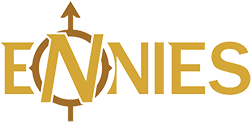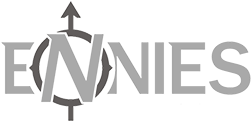Hail Adventurers,
Yesterday I was privileged to speak with Matt Wilson, the Creative Director for Privateer Press. Here’s part one of the interview, where we get right down to the details on a new Iron Kingdoms RPG, and then back track a bit to see where it all started for Matt and the company.
Dan: So before we get to the rest of the interview, what can you tell me about the new Iron Kingdoms RPG?
Matt: It will come out at some undetermined time in the not too distant future, and it will be a proprietary system that will be tailored for the Iron Kingdoms IP. The most logical thing is for the new system to be an outgrowth of the WARMACHINE battle system. What we want is something that will let us create an RPG experience that emulates the mechanics of the world that we created.
Dan: So a player familiar with WARMACHINE can step into the new Iron Kingdoms RPG and say “Oh, ok I’m familiar with this.”
Matt: Right, and that’s always been the challenge with the D20 stuff. For example, we were trying to create a warcaster that didn’t just break the whole system. Because at the end of the day, warcasters are superheroes when compared to everyone else. If you’re not careful, you run into the jedi problem, right? I mean who wants to be a noble-
Dan: Or a stormtrooper-
Matt: Right, or a stormtrooper, when you can be a jedi master?
Dan: I played in an Iron Kingdoms campaign years ago, and I learned just how awesome a warcaster could be when the party’s level 5 Warcaster blew up a train in three rounds.
Matt: Yeah, and that’s really the key to the system. We always try to give those super heroic levels and abilities to everything, but because of the limitations of the d20 system, it made it more difficult to do so than it really needs to be. Once we are able to dive into this and work out our own proprietary system, we’ll be able to create a balanced RPG experience that makes it level across the board, while still accurately depicting how we imagine spell casting and things like that would work in the Iron Kingdoms. To me, that’s where the d20 system and Iron Kingdoms have always had a mismatch.
Dan: Do you have a development timeline or a release date picked for this new release?
Matt: As far as timeline, it’s a ways off. We’ve got a very heavy publishing schedule this year with the MK II release of the WARMACHINE and HORDES books. Once that’s done at the end of 2010, then that gives us more bandwidth to start on new projects.
Dan: So the developers who would be working on Iron Kingdoms are working on the MK II WARMACHINE and HORDES releases instead?
Matt: Yeah, with MK II, we’re relaunching WARMACHINE and HORDES. As part of that relaunch, we’ve consolidated 6 years worth of material for each of the factions into their own force books. In order to try and get all the players up to speed as soon as possible, we have a publishing schedule that requires that we knock out a new book every single month this year.
Dan: Oh my God.
Matt: Yeah, and that effort is tapping every single one of our resources from development through design, editing, production management, and the whole nine yards just to meet that publishing schedule. Then, once that’s done, then we can take a breather and start working on new product development
Dan: Sounds like you’ll be busy for the rest of this year.
Matt: 2011 will bring a lot of new and different kinds of challenges.
Dan: Do you think that 2011 will be an easier year for Privateer Press?
Matt: Well we’ve never really let up since we started. I wouldn’t say that we’ve ever had an ‘easy’ year. We tend to make each year harder on ourselves by being so ambitious with what we’re trying to do. But this year, we’ve buried the needle on all the pressure that we can apply.
Dan: Nice steampunk reference.
Matt: Now that I think of it, 2011 will be an easier year in terms of internal production schedule. There is a maximum amount of material that you can shove through any pipe, and that’s where we’re at this year.
Dan: Where did you get your start in the table-top games industry?
Matt: My first job with the industry was working with AEG in 1995, and I came on when they were still just a fledgling company. I think at the time their only products were Shadis Magazine, and some CCG box holders with some elaborate art work on them.
Dan: Were you doing the art work on any of the boxes?
Matt: No. Well actually, I think… I think I did one small werewolf box. But that was after I was with AEG for a little bit. Prior to that I had been working in comic books. I owned a small comic book company that, at the time, wasn’t doing too well. So I approached AEG about doing a serialized comic in Shadis magazine. While that comic never got off the ground, they hired me just a few days later to come on as an art director.
So I immediately started doing art direction for the magazine, and that was new for me. I was an artist and a writer, but never a director. Later I learned that they brought me on because they were planning to come out with the Legends of the Five Rings CCG, and I was the guy they wanted to do the art direction for it. I ended up doing a whole lot more than that though. I started with the magazine, and then I found myself involved in pretty much every aspect of the game as it was being developed; from design to marketing. I also did a lot of the initial world building where I basically created the world and the clans and then designed the look and feel for each of them.
Dan: I had no idea you did that. That’s a big deal!
Matt: Yeah, it was cool that I got to help lay the foundation for that setting. So I was there with AEG for two years before getting drafted by Wizards of the Coast to Art Direct magic for a while. Then I was drafted by FASA for two years after that. Then I went back to Wizards of the Coast where I worked in their illustration department for three years as the lead concept artist for Magic the Gathering.
Dan: So, at some point around there did you say to yourself “To hell with this I’m going to start my own company again!”?
Matt: Not really. I’d say it was more of a really fortunate planetary alignment. While I was at Wizards of the Coast, that’s when the d20 open game license launched and there was this huge boom of d20 companies. Around that time I was sitting with a friend one day and we talked about how we could start our own d20 company. We were both artists, and I had done some writing and we were both into games, so we thought we’d try and just through one out there.
That’s how The WitchFire Trilogy came to be. I did the world building and plotted the story that we built those modules around. Then Brian Snoddy and I did the artwork for it while Matt Staroscik wrote and did all the d20 mechanic work that went into those modules. Little did I know that this was all happening towards the end of my employment with Wizards of the Coast because they had just started downsizing. Soon after they cut all (or at least a great majority) of the artists they had employed at that time.
This worked out really well for me because we had Privateer Press ready to go. Actually, by the time I was let go by Wizards of the Coast, we had already done several RPG books. So I was able to transition right into working on Privateer Press full time, and in fact it was just a few months before we launched WARMACHINE.
Dan: That is a nice planetary alignment.
Matt: It was a really smooth transition from one to the other, and I didn’t have to scramble too much.
Dan: So on to Privateer Press, where did the name for the company come from?
Matt: I was trying to think of that when I saw your question. We went through a whole bunch of different name ideas. I want to say that it was a suggestion from Matt Staroscik, but it’s hard to say because we had a very long list with dozens of different names. We were trying to figure out what our identity was going to be. But as soon as ‘Privateer Press’ came up it stuck. All the other ones were thrown away because we knew that we had it. We liked the sound of it, and we felt that it embodied an attitude we wanted. That we were going to strike out on our own and do things our own way.
Dan: It definitely has a bit of a rebellious feel to it.
Matt: Yeah, but it’s not like we have anything to rebel against, you know? It’s not like “Hey! We’re the game industry and we’re going to take down THE MAN!” That wasn’t what we intended, but there was definitely a sense of empowerment that came with the name. It gave us an instant symbol to rally behind. Really, it became something universal for other people in that they understood and expected that from us.
I’ve always been glad that we chose that name and symbol for our company because it has been a guiding factor in how our company has developed. We’re independent, we try to be at the forefront of everything we do, and we like to try and set trends instead of follow in the footsteps of another company. Plus it’s always given us something to fall back on when we needed to give someone or some company the bird.
Come back tomorrow to read the rest of the interview, where you’ll get a ‘read it here first’ exclusive for WARMACHINE related news!



Pingback: It’s Alive: The Iron Kingdoms RPG Lives! by Purple Pawn
Pingback: Stargazer's World » Blog Archive » Good news for all Iron Kingdom fans!
Pingback: New IK RPG in 2011/2012? « Forge Games
Pingback: Novidades sobre o RPG de Reinos de Ferro « Volta, cavaleiro!